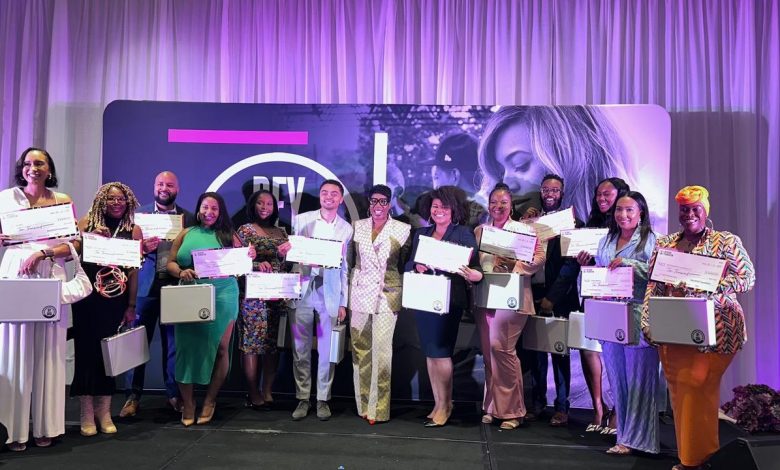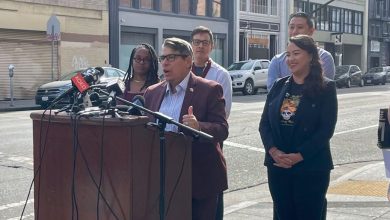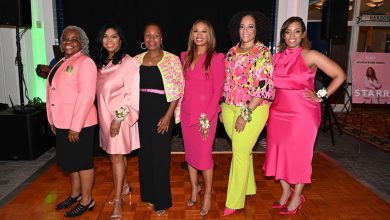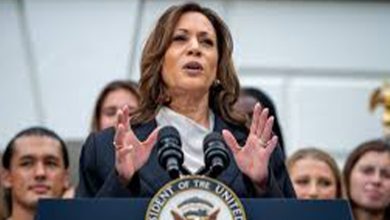Black Business Owners Concerned as Groups Step Up Attacks on Diversity

By Lila Brown
California Black Media
When the BeyGOOD foundation, led by Beyoncé Knowles-Carter, awarded Compton-based entrepreneur Veronica Clanton-Higgins $10,000 in August, the 46-year-old businesswoman says she felt empowered and recognized.
Clanton, whose company, VCH Prosperity Consulting provides mental health consulting and socio-emotional wellness services to businesses and organizations, was one of 12 winners in the Los Angeles area who were awarded grants.
Clanton is among hundreds of Black individuals and businesses who have benefitted from corporate Diversity, Equity and Inclusion (DEI) initiatives designed to empower African Americans.
These initiatives have gained momentum since companies intensified their commitment to addressing systemic racism and historical inequities in the wake of the tragic death of George Floyd and the subsequent protests that erupted nationwide.
However, if certain conservative groups opposed to DEI initiatives get their way, it would be illegal for companies to specifically allocate funding to Black individuals or Black-owned businesses.
The U.S. Supreme Court’s June decision banning affirmative action in college admissions could potentially pose a risk to corporate affirmative action programs.
Edward Blum, a conservative political strategist whose organization, The Project for Fair Representation, was instrumental in the lawsuits that ended the consideration of race in college admissions.
He is now suing the Fearless Fund, an Atlanta-based venture capital fund that supports Black women businessowners with $20,000, accusing it of unlawful racial discrimination.
The nonprofit American Alliance for Equal Rights, also established by Blum, claimed in its federal lawsuit, that the Fearless Fund is violating Section 1981 of the Civil Rights Act of 1866, a U.S. law barring racial bias in private business.
Clanton told California Black Media (CBM) she wants to improve the lives of people in her community.
“I will use the grant funding for general operations expenses, to provide programming such as a hygiene drive for youth at a local high school along with day of wellness events and workshops,” she said.
As Beyoncé’s Renaissance World Tour makes its way around the globe, the BeyGOOD Foundation supports small businesses affected by the global pandemic through a charitable initiative known as the Black Parade Route.
At each tour stop, the foundation hosts business impact luncheons where grant recipients are awarded $10,000 to support their business ventures, most of which are financially disadvantaged.
Both Goldman Sachs and the Fearless Fund are partners with BeyGOOD, which also counts major corporations as sponsors including Adidas, Mastercard, Grameen America, Cisco, Live Nation along with the National Minority Supplier Development Council (NMSDC), an organization that certifies companies as Minority Business Enterprises.
Last week, the Fearless Fund issued a 914-page response to the lawsuit, asserting that the case is baseless; that the plaintiff does not have the right to sue; and that supporting Black women does not harm others, among other claims.
NMSDC’s CEO Ying McGuire issued a statement on the ruling which she said will have significant generational impacts on the business community, particularly for supplier diversity and business diversity programs.
“I am deeply concerned about the ramifications of this decision which poses a direct threat to minority-owned businesses and their economic prosperity,” she said.
In July, the attorney generals of 13 states penned a letter to the CEOs of Fortune 100 companies warning them to “refrain from discriminating on the basis of race.”
“Racial discrimination in employment and contracting is all too common among Fortune 100 companies and other large businesses,” the letter reads. “In an inversion of odious discriminatory practices of the distant past, today’s major companies adopt explicitly race-based initiatives which are similarly illegal.”
Corporate social responsibility programs like the Black Parade Route, J.P. Morgan Chase’s Advancing Black Wealth Tour, and Goldman Sach’s One Million Black Women specifically focus on empowering Black entrepreneurs.
Other corporations have launched Diversity Equity and Inclusion (DEI) programs that aim to increase the representation of Blacks and other minorities at all levels of their corporate structures, while others have focused on Supplier Diversity Programs in procurement.
The J.P. Morgan Chase’s Black Wealth Tour was also established in response to the national reckoning that followed the death of George Floyd. The roadshow is part of a broader initiative that promotes equity and inclusion for the Black community.
This year’s tour features Golden State Warriors star and four-time NBA champion Stephen Curry.
At the Oakland stop in August, Curry shared his experience as a venture capitalist with over 300 attendees.
“Generational wealth is about possibilities and about rectifying 400 years of disadvantages since the system was designed to disadvantage Black people around the country,” Curry said.
Although Proposition 209, enacted in California in 1996, prohibited the consideration of race in college admissions and state contracting, advocates say DEI programs still benefit Black businesses in the state.
“I am not surprised by these attacks on diversity. America is in denial about our history – our treatment of minorities, especially Blacks,” said Jay King, president and CEO of the California Black Chamber of Commerce. “We have to come together as Americans of all races and fight for the humanity of each other or we are doomed. That is how we live up to our desire to fix historical wrongs and be truly inclusive.”
Earlier this year, there was a sudden exodus of Black women executives in Hollywood leading DEI initiatives, including Karen Horne, senior vice president of North America DEI at Warner Bros. Discovery; Jeanell English, executive vice president of impact and inclusion at the Academy of Motion Pictures Arts and Sciences; Vernā Myers, Netflix’s first head of inclusion; and LaTondra Newton, Disney’s chief diversity officer and senior vice president.
Additionally, Terra Potts, executive VP of worldwide marketing at Warner Bros., left the studio after 13 years.
Launching her National “Fight for Our Freedoms” College Tour at Hampton University last week, Vice President Kamala Harris characterized those opposing DEI initiatives as “extreme.”
“If we want equal outcomes, we must take into account that not everyone starts out on the same base,” noted Harris.
Antonio Ray Harvey contributed to this article.





